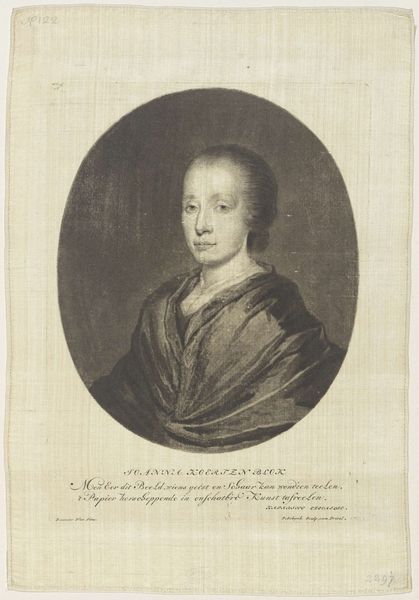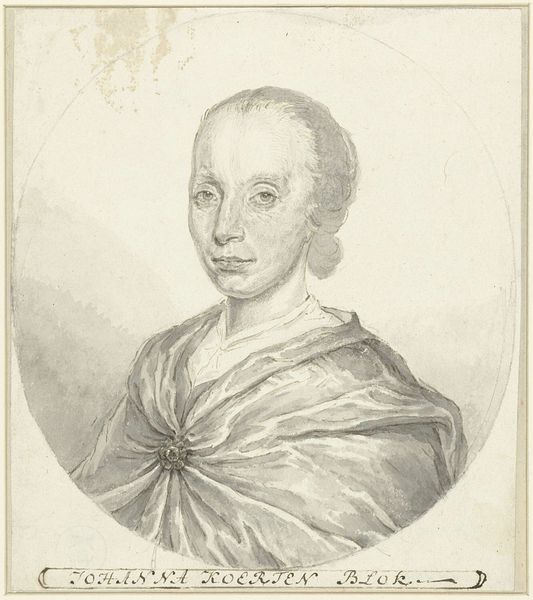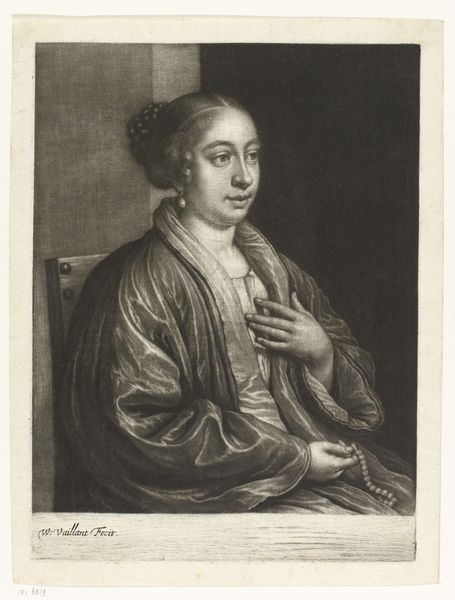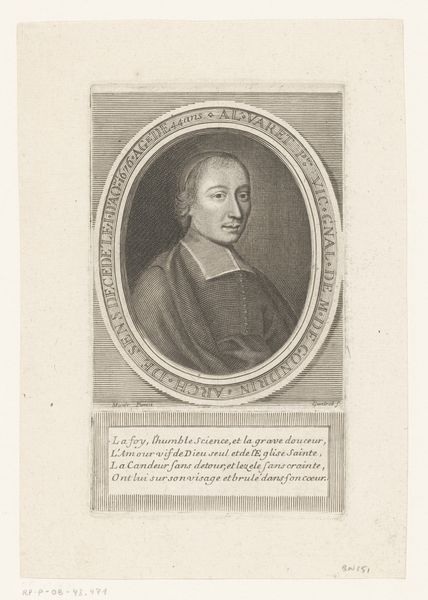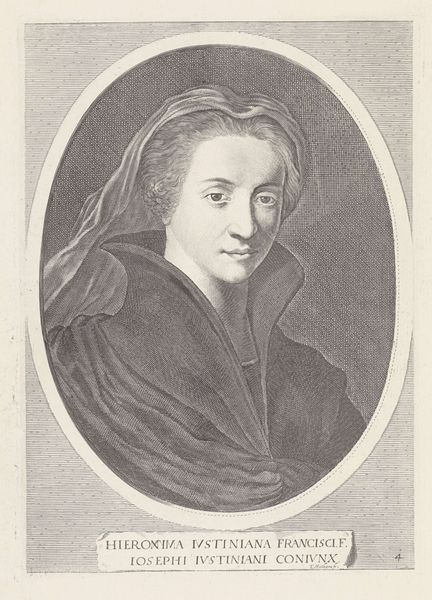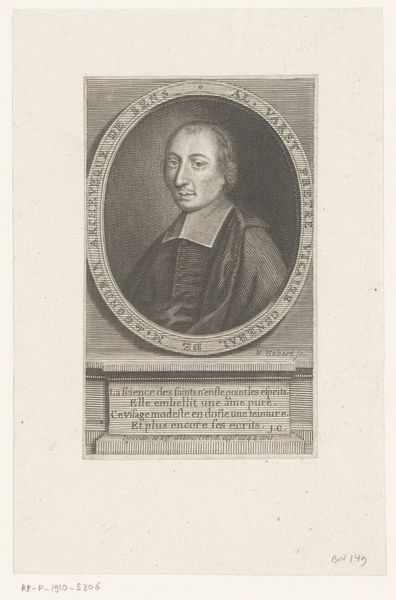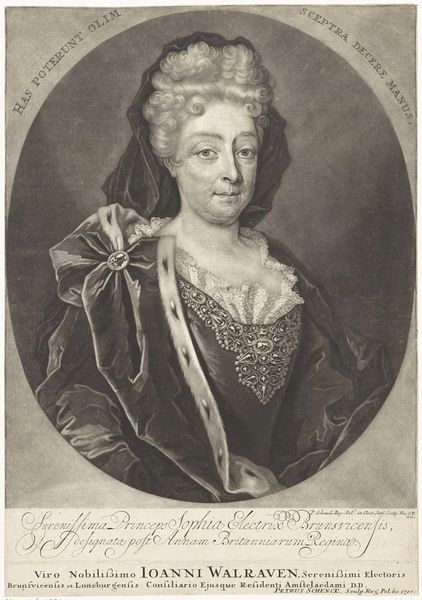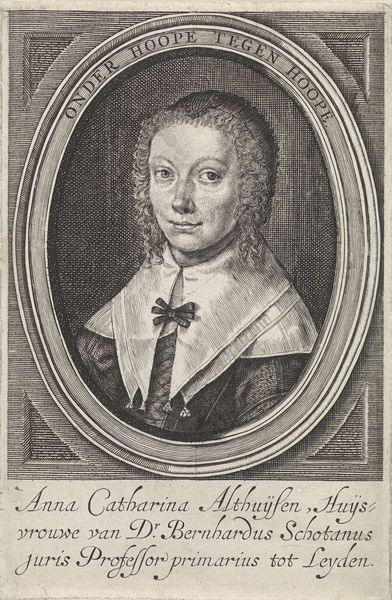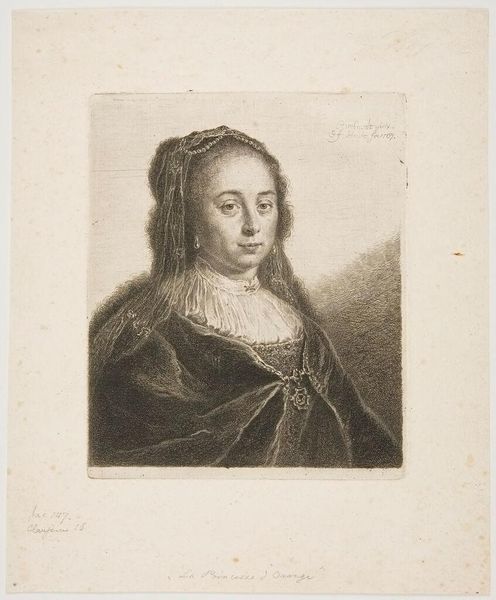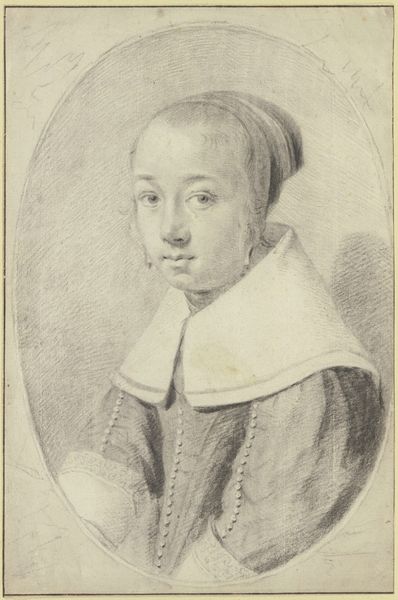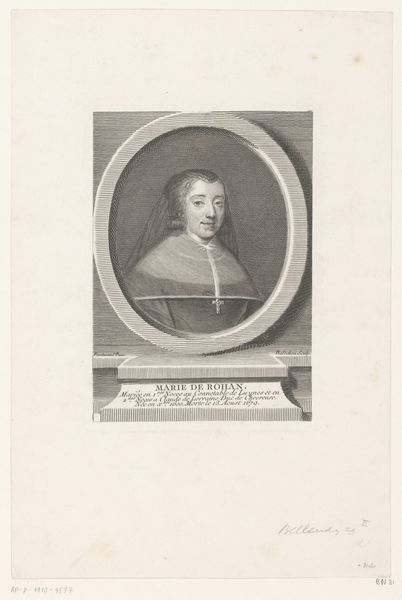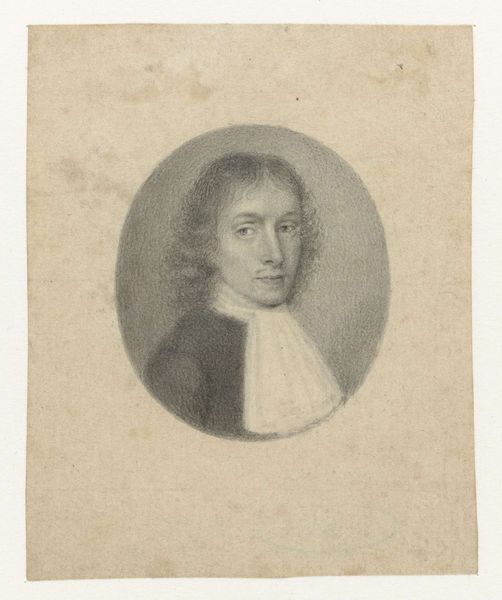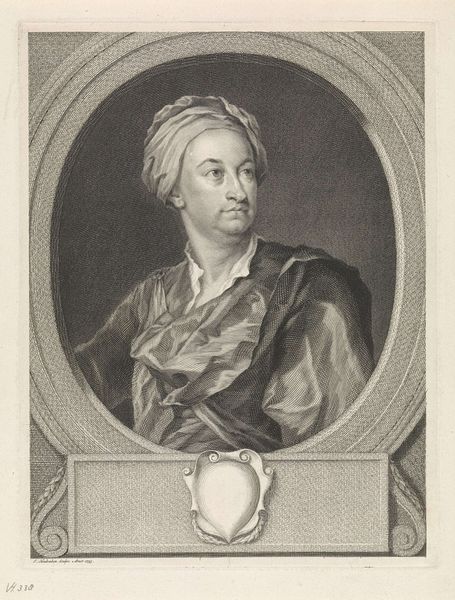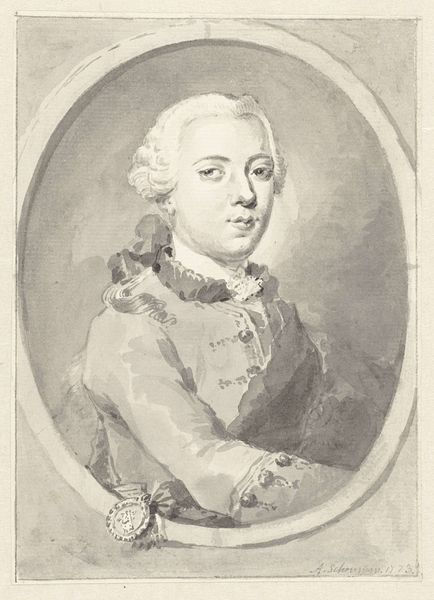
metal, engraving
#
portrait
#
baroque
#
dutch-golden-age
#
metal
#
old engraving style
#
charcoal drawing
#
pencil drawing
#
engraving
Dimensions: height 246 mm, width 180 mm
Copyright: Rijks Museum: Open Domain
This is Pieter Schenk’s portrait of Johanna Koerten, made with mezzotint, a printmaking technique, sometime between 1660 and 1711. Koerten was a paper cutting artist in the Netherlands during the Golden Age. It's interesting to consider the social status of women artists in the 17th century, particularly in the context of the Dutch Golden Age. Women were often excluded from formal art training. For a woman like Koerten to achieve recognition for paper cutting, a traditionally domestic craft, suggests a negotiation of gendered expectations. This portrait by Schenk elevates her status, immortalizing her as a skilled artist. Yet it also locates her genius specifically within the confines of her artistry, a "female" artform. The use of mezzotint in this portrait is particularly interesting because of the tonal range. Mezzotint allowed for the creation of rich and subtle gradations of light and shadow. The soft, velvety texture that Schenk achieves gives the image a striking sense of depth. Consider how the artwork shapes our understanding of gender, labor, and artistic recognition in the 17th century. While Schenk's portrait celebrates Koerten's achievements, it also reflects the complex negotiation of gender and artistic identity.
Comments
No comments
Be the first to comment and join the conversation on the ultimate creative platform.
